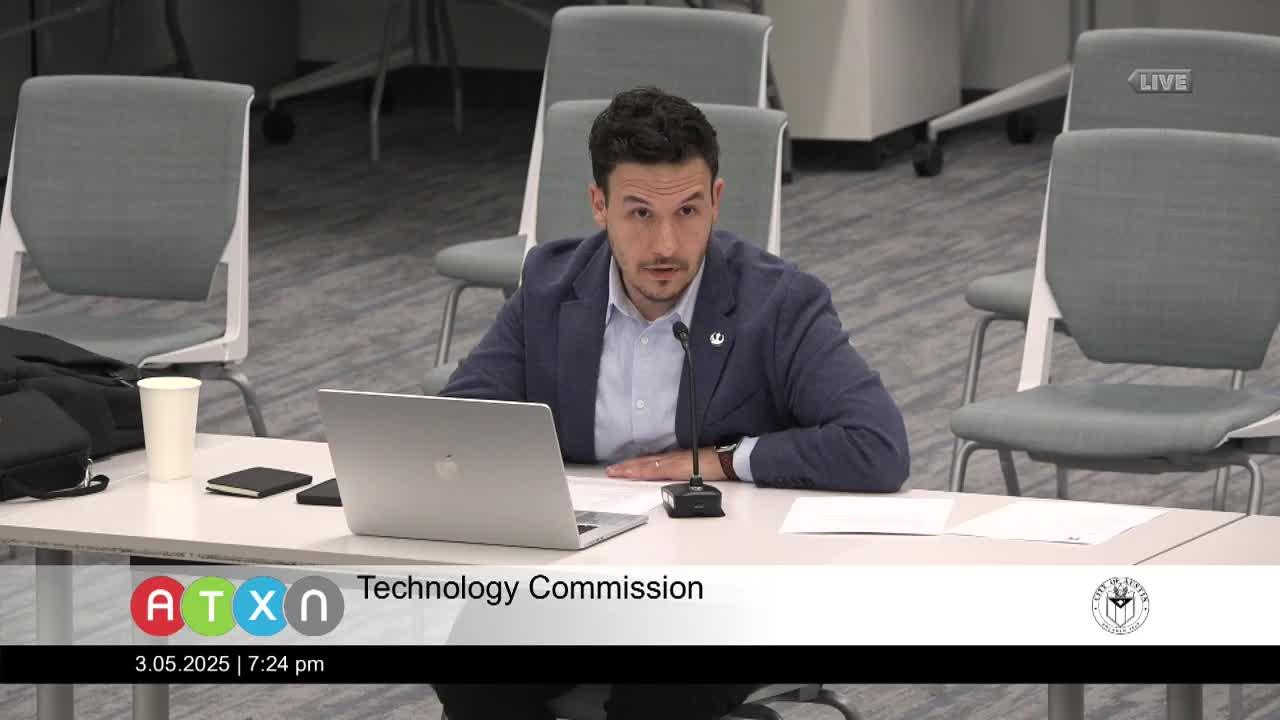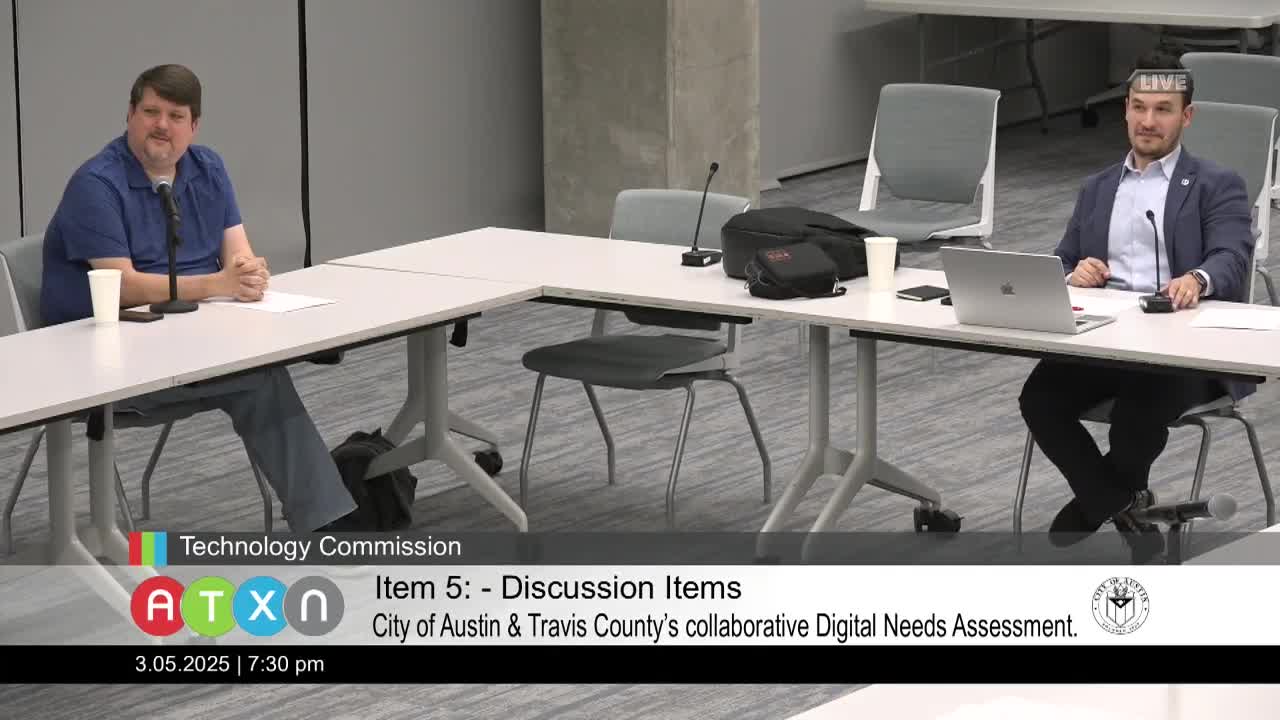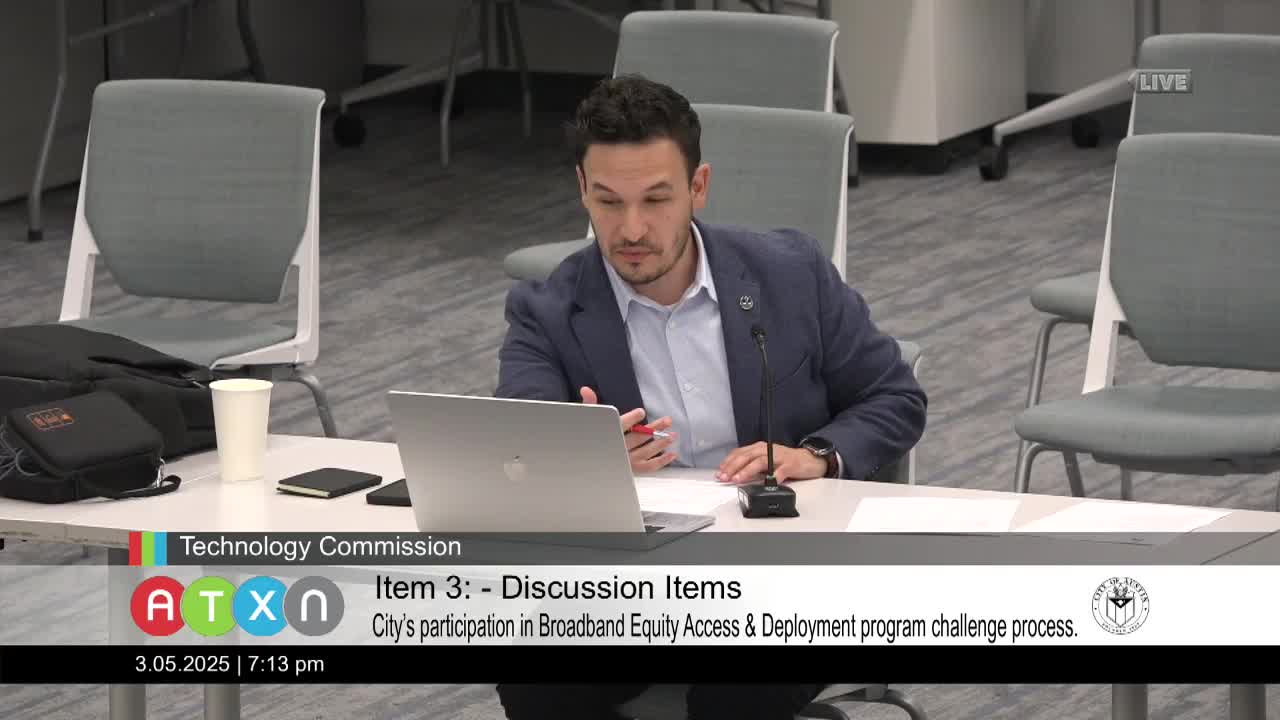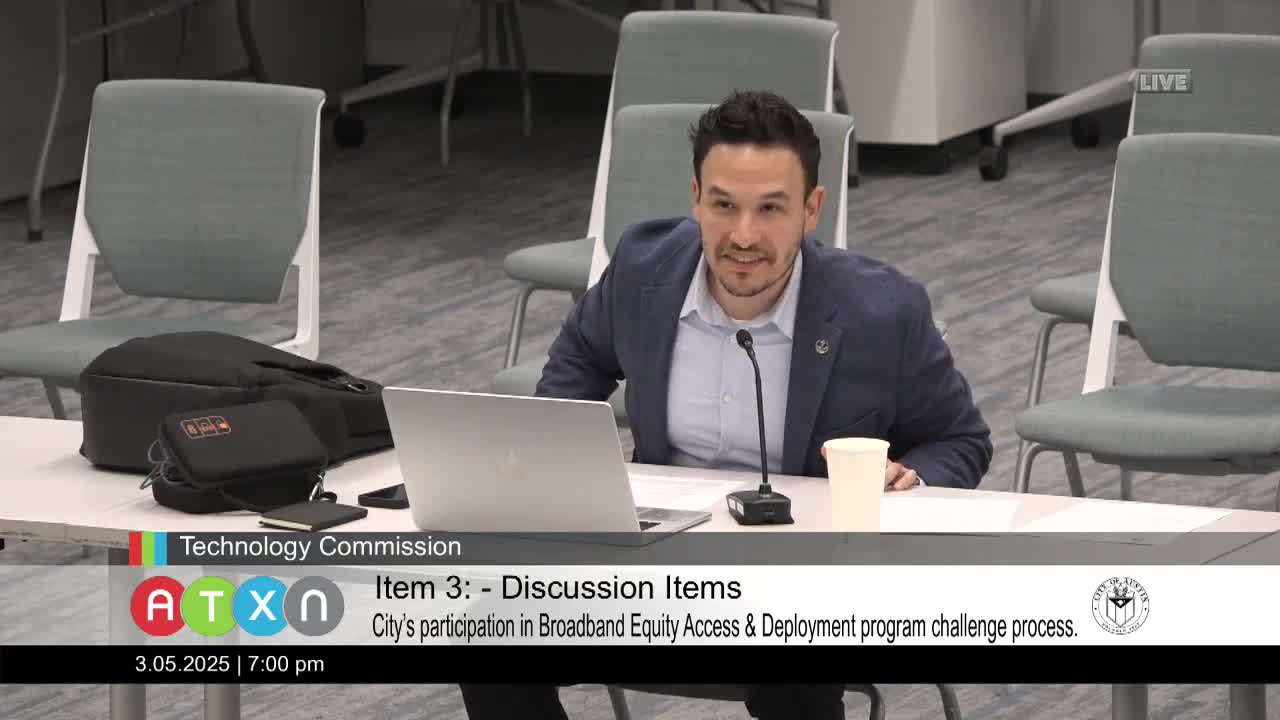Article not found
This article is no longer available. But don't worry—we've gathered other articles that discuss the same topic.

Technology Commission unanimously forwards FY26 budget recommendations for GTOPS, device fund, public internet, training and AI upskilling

Travis County and City present 2023 Digital Equity Needs Assessment: cost, skills and mobile access top barriers

Thinkery describes EdXchange STEAM program to Technology Commission; program supported by GTOPS

